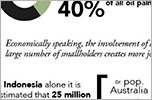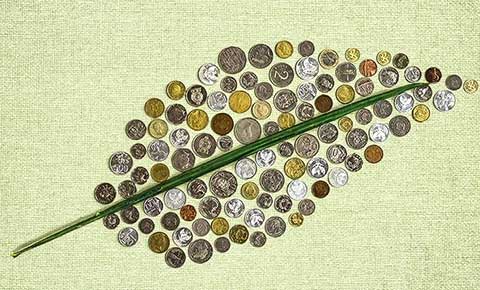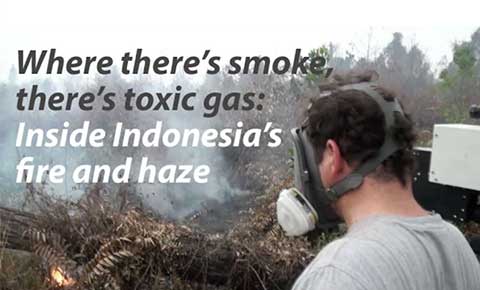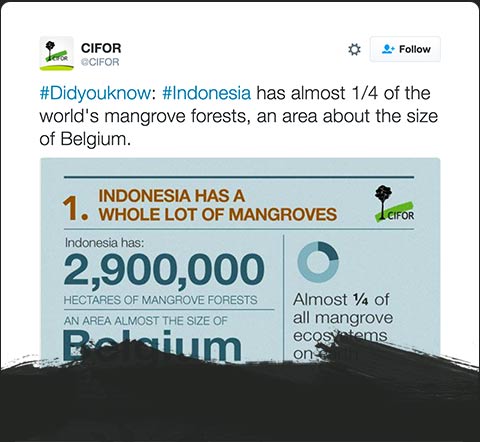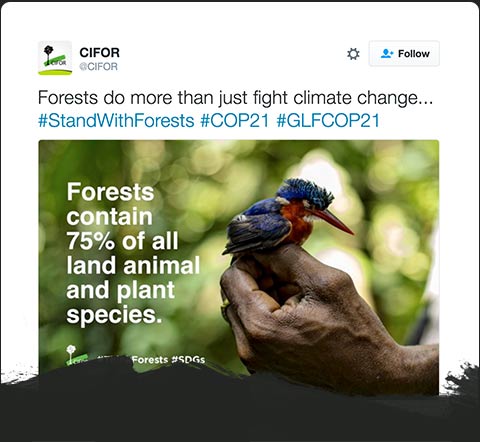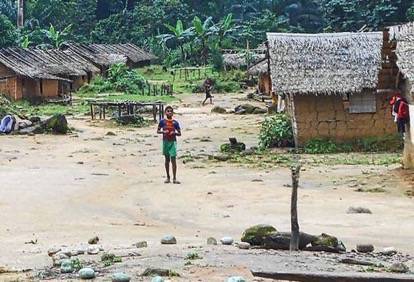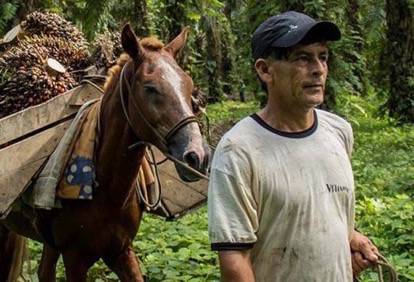
Elucidating the impacts of zero deforestation
Our research examines the implications of private sector commitments to zero deforestation in the context of wider public and private institutional arrangements
Over the past 30 years, demand for agricultural commodities has increased, which has expanded production frontiers and driven deforestation. Recently some of the world’s largest consumer goods companies have committed to eliminating deforestation from their supply chains. This bold step puts pressure on producers and processors of key commodities, notably soy, beef and palm oil, to embrace zero deforestation commitments as well.
Zero deforestation pledges may offer a way to halt deforestation if they are implemented effectively. Yet they also create risks for smallholders, who may be excluded from global value chains by the high costs and operational challenges of demonstrating that their production is deforestation free. Conversely, companies may be willing to support smallholders to upgrade their production systems to meet zero deforestation commitments. There are questions too about how governments can support these pledges while retaining national sovereignty in decisions about land governance, economic growth and poverty alleviation.
"Solving this multifaceted puzzle requires a collaborative approach: bringing together public and private initiatives and pooling finance. Neither public rules nor private commitments must dictate the rules of the game.”
In 2015, CIFOR started to examine the scope and implications of corporate zero deforestation commitments. We are evaluating private sector efforts to deliver sustainable production that is both deforestation-free and inclusive of smallholders in the context of broader institutional arrangements. In March 2015 CIFOR convened a panel on zero deforestation in Indonesia at the World Bank Conference on Land and Poverty, involving KADIN, SNV and CIFOR. With the Tropical Forest Alliance 2020 we also convened a discussion forum at GLF 2015 in December 2015 with a focus on oil palm in Indonesia, involving the Indonesian Chamber of Commerce, Musim Mas, Greenpeace and Unilever.
CIFOR advances human well-being, environmental conservation and equity by conducting research to help shape policies and practices that affect forest landscapes in developing countries. CIFOR is a member of the CGIAR Consortium. Our headquarters are in Bogor, Indonesia, with offices in Asia, Africa and Latin America.
CIFOR leads the CGIAR Research Program on Forests, Trees and Agroforestry.
foreststreesagroforestry.orgCIFOR is also a member of the CGIAR Research Program on Climate Change, Agriculture and Food Security (CCAFS).
ccafs.cgiar.orgFlagship projects
Partners and processes
In 2015, CIFOR and its stakeholders benefited from:
-
144
-
85
- 33
- 33
-
29
-
35
CIFOR and its partners contribute to the following global processes, frameworks, panels and conventions:

Publications
Demand from stakeholders for CIFOR’s research grew at an unprecedented pace this year. In 2015 we disseminated more than 62,000 knowledge products at events, meetings and on request.
25% increase from 2014
Analysis
-
DG’s column addresses new forest assessments, the World Forestry Congress, and more.
-
At the peak of Indonesia's peatland fires, our scientists went to the field to find clear answers to the haze issue.
-
CIFOR researchers untangle the issues around zero deforestation, dry forests, land tenure, satellite data and more.
Numbers
77% increase compared to 499,000 views in 2014
127% increase compared to #GLFCOP20 tweets
CIFOR's research is designed to have a far reach, aiming to inform policy and effect real change on the ground. We foster a strong "impact culture" through:
A focus on gender
From planning research priorities to developing partnerships and communicating findings, gender is integrated throughout our work.
Capacity building
All of our research programs and projects include measures to strengthen both individual and institutional capacity.
Monitoring impact
We use sophisticated monitoring and evaluation techniques to gather feedback and improve our pathways to impact.
Each year, CIFOR's scientific findings reach more people through a communications strategy that combines journalistic approaches, social media and science communication.

 35,200
35,200
total Facebook likes, 24% increase

 37,733
37,733
Twitter followers, 41% increase

 7.5 million
7.5 million
photo views on Flickr, 56% increase

 564k
564k
cumulative video views on YouTube, 36% increase

 5227
5227
LinkedIn followers, 39% increase

 Top 5%
Top 5%
of Most-Viewed on SlideShare, with over 237k views, 42% increase

PHOTO
Selected photos

PHOTO
Selected photos

PHOTO
Selected photos

PHOTO
Selected photos

PHOTO
Selected photos

PHOTO
Selected photos

PHOTO
Selected photos

PHOTO
Selected photos

PHOTO
Selected photos

PHOTO
Selected photos

PHOTO
Selected photos

PHOTO
Selected photos

PHOTO
Selected photos

PHOTO
Selected photos

PHOTO
Selected photos

PHOTO
Selected photos

PHOTO
Selected photos

PHOTO
Selected photos

PHOTO
Selected photos

PHOTO
Selected photos

PHOTO
Selected photos

PHOTO
Selected photos

PHOTO
Selected photos

PHOTO
Selected photos

PHOTO
Selected photos

PHOTO
Selected photos

PHOTO
Selected photos

PHOTO
Selected photos

PHOTO
Selected photos

PHOTO
Selected photos

PHOTO
Selected photos

PHOTO
Selected photos

PHOTO
Selected photos

PHOTO
Selected photos

PHOTO
Selected photos

PHOTO
Selected photos

PHOTO
Selected photos

PHOTO
Selected photos

PHOTO
Selected photos

PHOTO
Selected photos

PHOTO
Selected photos

PHOTO
Selected photos

PHOTO
Selected photos

PHOTO
Selected photos

PHOTO
Selected photos

PHOTO
Selected photos

PHOTO
Selected photos

PHOTO
Selected photos

PHOTO
Selected photos

PHOTO
Selected photos

PHOTO
Selected photos

PHOTO
Selected photos

PHOTO
Selected photos

PHOTO
Selected photos

PHOTO
Selected photos

PHOTO
Selected photos

PHOTO
Selected photos

PHOTO
Selected photos

PHOTO
Selected photos

PHOTO
Selected photos

PHOTO
Selected photos

PHOTO
Selected photos

PHOTO
Selected photos

PHOTO
Selected photos

PHOTO
Selected photos

PHOTO
Selected photos

PHOTO
Selected photos

PHOTO
Selected photos

PHOTO
Selected photos

PHOTO
Selected photos

PHOTO
Selected photos

PHOTO
Selected photos

PHOTO
Selected photos

PHOTO
Selected photos

PHOTO
Selected photos

PHOTO
Selected photos

PHOTO
Selected photos

PHOTO
Selected photos

PHOTO
Selected photos

PHOTO
Selected photos

PHOTO
Selected photos

PHOTO
Selected photos

PHOTO
Selected photos

PHOTO
Selected photos

PHOTO
Selected photos



